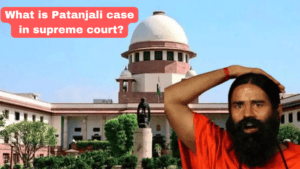
The Supreme Court’s resolute stance against misleading advertisements is a landmark decision and a significant turning point in the legal landscape. It establishes a precedent that holds celebrities and influencers equally accountable as advertisers for any deceptive portrayal of products or services. This decision mandates a proactive approach, requiring all advertisers to provide assurances of authenticity and non-misleading nature before disseminating commercials or print ads.
The court’s profound pronouncements were the result of a petition filed by the Indian Medical Association (IMA). This was a significant step in challenging the misleading advertisements endorsed by Yoga luminary and entrepreneur Ramdev for Patanjali Ayurved. This action underscores the IMA’s commitment to consumer protection.
The bench, comprising justices Hima Kohli and Ahsanuddin Amanullah, emphasized the pivotal role of responsibility in celebrity endorsements. It underscored that both advertisers and endorsers shoulder the burden of ensuring the veracity of advertisements. The bench highlighted the substantial influence of celebrities, influencers, and public figures in product promotion, emphasizing the critical need for conscientiousness in their endorsement endeavors.
Reaffirming its unwavering commitment to consumer welfare, the court not only underscored the necessity for robust regulations but also took proactive measures to empower consumers and facilitate the lodging of complaints against misleading advertisements. Additional solicitor general KM Nataraj presented comprehensive reports detailing the proactive measures undertaken by various government ministries to combat misleading commercials, encompassing the realms of consumer affairs, health, information, broadcasting, and Ayush.
The court rebuked the move and prompted its withdrawal by expressing strong disapproval at a communication from the Ayush Ministry suspending Rule 170 of the Drugs and Cosmetic Rules. Moreover, the court castigated the Uttarakhand government for failing to enforce an order suspending the production of certain Patanjali products, urging prompt action and accountability.
In a decisive move, the court-mandated advertisers in both print and electronic media to furnish self-declarations to relevant broadcasters, printers, or publishers, thereby fortifying accountability and transparency in advertising practices.
Committed to consumer protection, the court underscored the central consumer protection authority’s (CCPA) vital role in addressing grievances stemming from misleading advertisements. Furthermore, the court demanded a comprehensive and detailed status report on the redressal of consumer complaints about food and health products, demonstrating its rigorous approach to consumer protection.
As the judicial discourse adjourned to May 14, the court not only agreed to entertain an application filed by Patanjali MD Balkrishna against the president of IMA concerning an allegedly objectionable media interview but also underscored its unwavering commitment to adjudicating matters of public interest and consumer welfare, further solidifying its role as a guardian of consumer rights.
